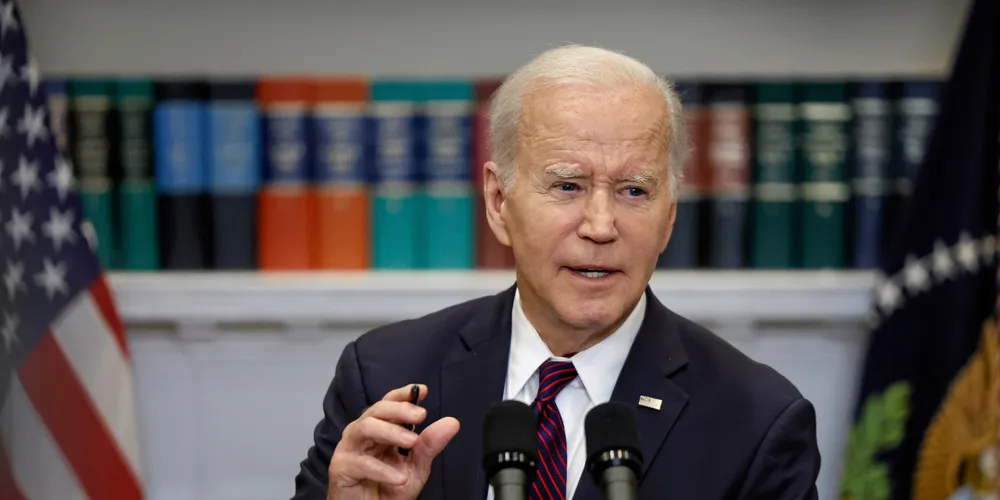Biden vetoes measure to reinstate US tariffs on some Chinese solar panel imports
The move signifies that certain modules from four Southeast Asian nations can continue to enter the US without financial penalties through 6 June 2024

President Joe Biden on Tuesday vetoed a bipartisan congressional resolution that would have reinstated tariffs on Chinese branded solar cells and panels from Southeast Asia found to violate US trade rules.
“Passage of this resolution bets against American innovation,” Biden said in a statement. “It would undermine these efforts and create deep uncertainty for American businesses and workers in the solar industry.”
Given the resolution narrowly passed earlier this month, its sponsors are unlikely to muster a two-thirds majority in both houses of Congress to override his veto.
As a result, Biden’s action will allow Chinese solar products from Cambodia, Malaysia, Thailand, and Vietnam initially found to be illegally circumventing tariffs to enter the US without financial penalty until 6 June 2024. By tonnage, those nations together account for about 80% of US PV module imports.
After then, they could be subject to both retroactive duties and/or new ones between 50% and 254% if the Department of Commerce (DoC) concludes that they did avoid US tariffs by routing them for “minor processing” to affiliated manufacturing facilities in those nations.
DoC initial finding was that four large Chinese suppliers were likely violating US trade rules in this manner – it recommended stiff penalties - and another 22 companies were under investigation. Four others were found to be in compliance.
“President Biden’s veto has helped preserve our nation’s clean energy progress and prevented a bill from becoming law that would have eliminated 30,000 American jobs, including 4,000 solar manufacturing jobs,” said Abigail Ross Hopper, CEO of Solar Energy Industries Association, a national trade group based in Washington, DC.
“This action is a reaffirmation of the administration’s commitment to business certainty in the clean energy sector, and a signal to companies to continue creating jobs, building domestic manufacturing capacity and investing in American communities,” she added.
Greg Wetstone, CEO of the American Council on Renewable Energy, called Biden’s veto a “welcome step to avoid a disastrous impact on the US economy and ensure continuing progress toward the clean energy transition and our climate goals.” Acore does not have Chinese panel suppliers in its membership.
Biden has said he will not extend the moratorium on tariffs. Still, he will feel intense pressure from solar developers and installers to do so, along with the industry’s allies in Congress in the run-up to 2024 national elections. He is running for a second, four-year term.
Even with two years of breathing room to expand capacity, US production will not be anywhere close to being able to meet demand stoked by generous tax incentives in the federal climate law he signed last August.
Critics of Biden's tariff pause said it undercut DoC's ongoing probe but also helps Chinese companies who are breaking US law to compete in the domestic market against First Solar and other module suppliers here investing billions of dollars to expand production capacity.
Should his administration slap new financial penalties on Chinese branded solar products, suppliers in Southeast Asia could react by diverting some shipments from the US. That, in turn, could both undercut module supply and chill sector activity here amid uncertainties over future applications of US trade policies.
(Copyright)